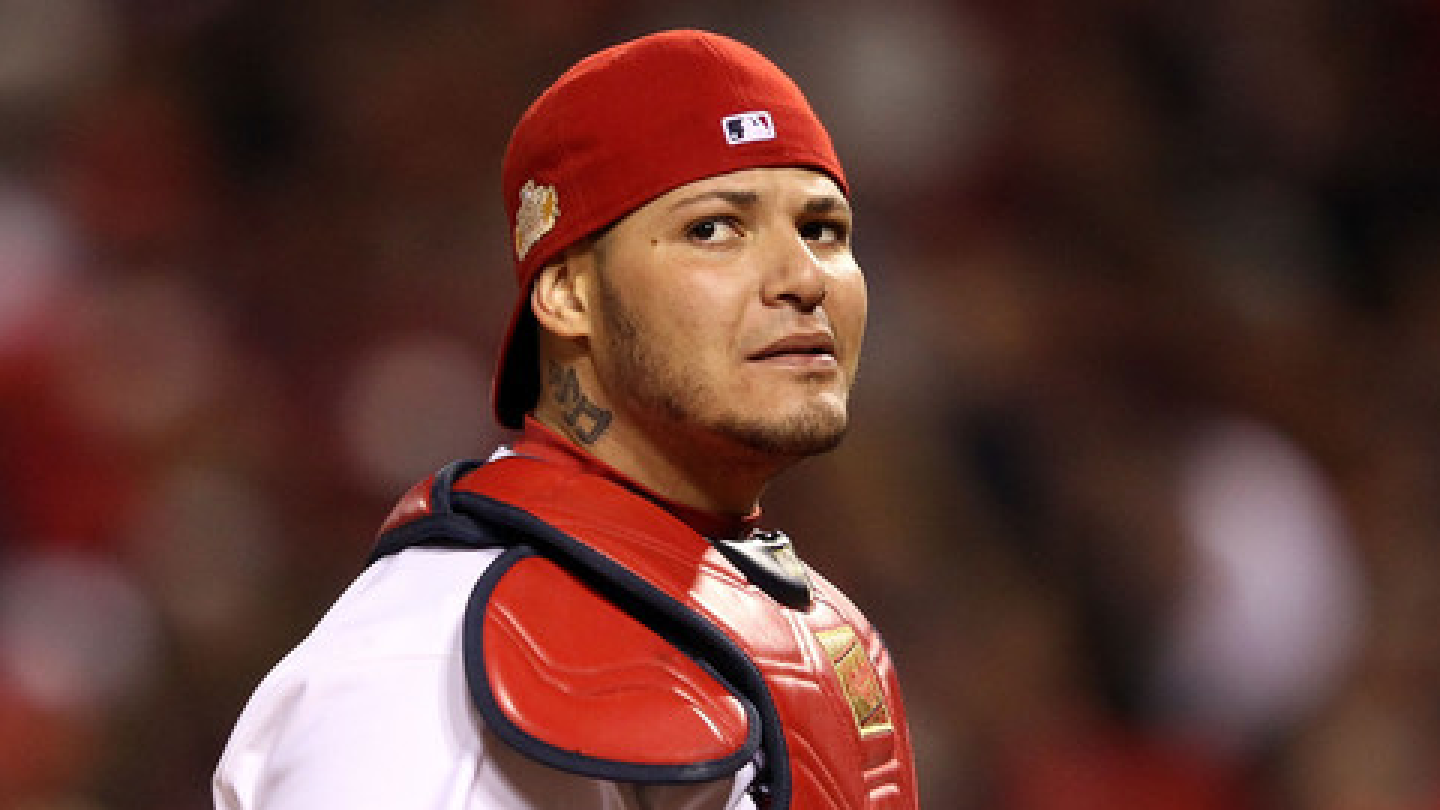The beautiful thing about science -- any field of it -- is that you start out with a hypothesis and you use data to confirm or reject your hypothesis. You don’t simply accept something as fact because a lot of people believe it or because someone in authority told you it was true. Science does have its flaws, especially when performed by humans, but it’s quite a good system, one that has served us well over the years. Sabermetrics, or more generally the practice of statistical analysis, has brought that into baseball, offering us some sometimes cold truths about what we thought we knew about the game.
For years, we have accepted that Cardinals catcher Yadier Molina has a bunch of intangibles that make him better than any other catcher in the game. And it still may be true that he has them, but perhaps the impact of those intangibles has been overstated. Over at FanGraphs, Jeff Sullivan dug into the numbers expecting to find that pitchers performed much better with Molina behind the dish than with other catchers. He was surprised by what he found:With Molina, the pitchers averaged a .746 OPS against. With non-Molina, the pitchers averaged a .757 OPS against. That’s a difference of 11 points, and if you just look at the guys who had samples of at least 500 plate appearances instead of 250, the difference is 15 points. There’s a difference that exists, but it’s hardly massive at all, and it might be entirely explained by Molina’s quality framing. For as good as Molina’s reputation is when it comes to guiding a pitcher through a game, these numbers right here suggest he’s hardly a wizard. Or, if he is a wizard, then a lot of catchers are wizards.
[...]
But maybe game-calling also just isn’t that big of a thing. By which I mean, maybe there isn’t that much of a spread, once you get to the majors. As in all skills, the majors are selective for elite ability, and calling a game is a big one. There do exist poor sequences, but big-league catchers probably won’t call them. It’s possible they’ll end up with similar approaches, especially given that they tend to work with the pitchers in advance of their games.
Molina was one of the three finalists for the NL MVP award, eventually taken home by center fielder Andrew McCutchen of the Pirates. He was barely edged out of second place by Diamondbacks first baseman Paul Goldschmidt. Molina finished fourth in 2012’s voting as well, behind Buster Posey, Ryan Braun, and McCutchen.









